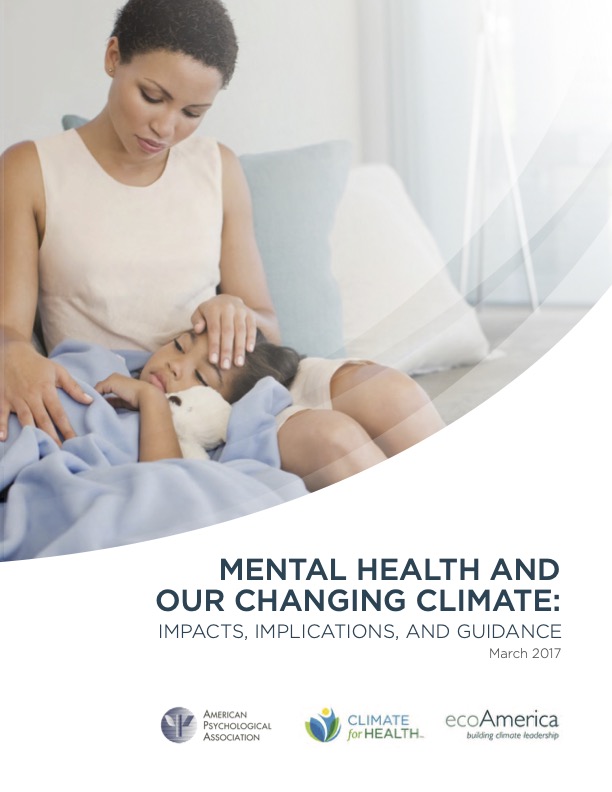ecoAmerica & American Psychological Association, 2017
Author(s): Susan Clayton, Christie Manning, Kirra Krygsman & Meighen Speiser

Thus far, most research and communications on the impacts of climate change have emphasized the physical health effects, while mental health has been secondary. Building upon Beyond Storms and Droughts: The Psychological Impacts of Climate Change, the goal of this updated report is to increase awareness of the psychological impacts of climate change on human mental health and well-being. The report provides climate communicators, planners, policymakers,
public health professionals, and other leaders the tools and tips needed to respond to these impacts and bolster public engagement on climate solutions.
The impacts of climate change on people’s physical,
mental, and community health arise directly and indirectly. Some human health effects stem directly from natural disasters exacerbated by climate change, like floods, storms, wildfires, and heatwaves. Other effects surface more gradually from changing temperatures and rising sea levels that cause forced migration. Weakened infrastructure and less secure food systems are examples of indirect climate impacts on society’s physical and mental health. Some communities and populations are more vulnerable to the health-related impacts of climate change. Factors that may increase sensitivity to the mental health impacts include
geographic location, presence of pre-existing disabilities or chronic illnesses, and socioeconomic and demographic inequalities, such as education level, income, and age. In particular, stress from climate impacts can cause children to experience changes in behavior, development, memory, executive function, decision-making, and scholastic achievement.



